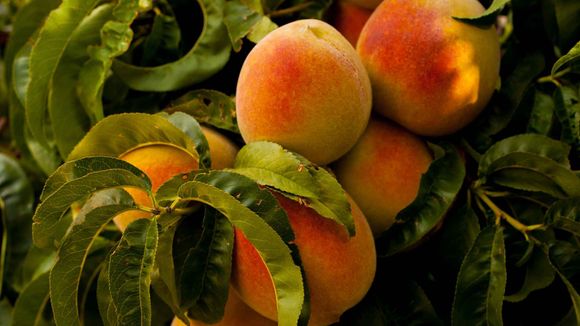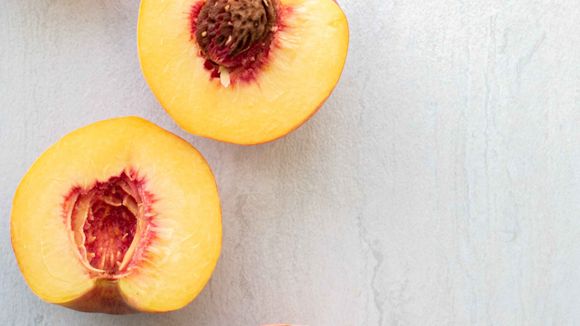Health Benefits of Peaches (Prunus persica)
Peaches are rich in nutrients and antioxidants
Peaches are rich in many vitamins, minerals and beneficial plant compounds. A medium-sized peach (150 grams) provides approximately the following amount of nutrients:
- Calories: 58 kcal
- Protein: 1 gram
- Fat: less than 1 gram
- Carbohydrates: 14 grams
- Fiber: 2 grams
- Vitamin C: 17% of daily value (DV)
- Vitamin A: 10% of DV
- Potassium: 8% of DV
- Niacin: 6% of DV
- Vitamin E: 5% of DV
- Vitamin K: 5% of DV
- Honey: 5% dv
- Manganese: 5% of DV
Peaches also provide smaller amounts of magnesium, phosphorus, iron and some B vitamins. The fresher and ripe the fruit, the more antioxidants it contains. [ [ref. 1] For these fruit, it is interesting that fresh and canned ones seem to have similar amounts of vitamins and minerals - as long as the canned ones are not peeled. [ref. 2]
May aid digestion
Peaches can contribute to healthy digestion. One medium-sized fruit provides about 2 grams of fiber - half of which are soluble fiber, while the other half is insoluble fiber. Insoluble fibers contribute to stool volume and help move food through the intestines, reducing the likelihood of constipation. [ref. 3]
May improve heart health
Regular consumption of fruit - including peaches - can promote heart health. Peaches can reduce risk factors for heart disease, such as high blood pressure and high cholesterol levels. What's more, in vitro studies have shown that peaches can bind to bile acids, compounds produced by your liver from cholesterol. The associated bile acids - along with the cholesterol they contain - are eventually excreted through the stool, which can help lower cholesterol levels in the blood [ref. 5]
May protect skin health
Peaches can have protective effects that help keep your skin healthy. In vitro studies have shown that compounds found in peaches improve the skin's ability to retain moisture. This improves and nourishes the texture of the skin.

Potential anticancer action
Like most fruits, peaches provide beneficial plant compounds that can offer some protection against various cancers. In particular, the skin and flesh of peaches are rich in carotenoids and caffeic acid - two types of antioxidants that have been found to have anticancer properties. [ [ref. 6] ] In vitro and animal studies have also shown that compounds in peach seeds can limit the growth of non-cancerous skin tumours and prevent them from becoming cancerous. [Ref. 7]
Peaches are also rich in polyphenols - a category of antioxidants that have been shown to reduce growth and limit the spread of cancer cells in in vitro studies. [Ref. 8]









